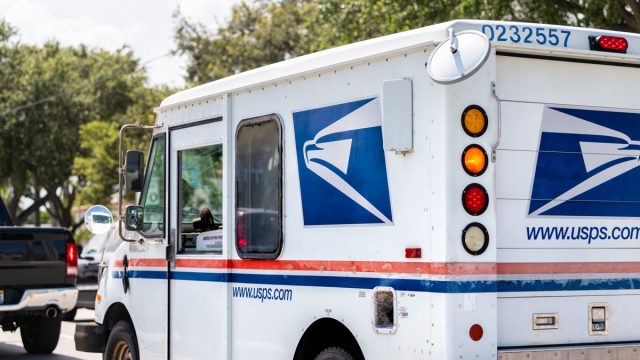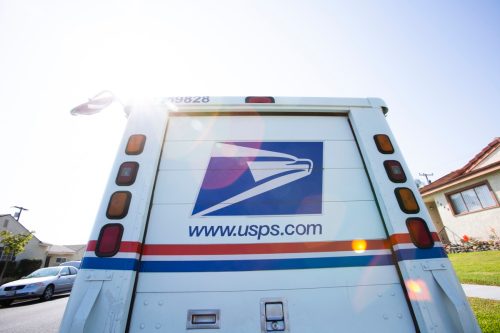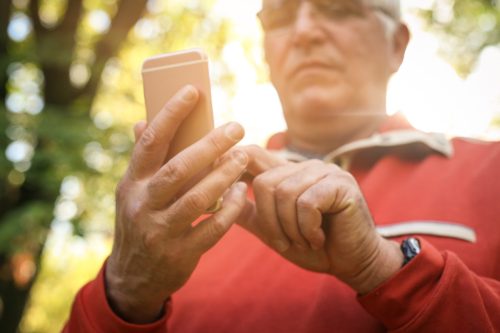USPS Will Never Ask You to Do This, Officials Say in New Warning
Look out for this telltale sign you're being targeted by scammers.

Getting a package delivered to your home is not guaranteed to be a smooth process. The U.S. Postal Service (USPS) has been called out for false claims over attempted deliveries in the past, and recently customers all across the U.S. have been complaining about delivery delays. But don't let frustration over the whereabouts of your mail drive you straight into the arms of con artists. In a new warning, officials are alerting Americans about a new scam that involves the Postal Service. Read on to find out what they say the USPS will never ask you to do.
READ THIS NEXT: USPS Is Suspending These Services, Effective Immediately.
Officials have reported an increase in imposter texts.

Fraudsters have long worked to exploit people's trust through imposter scams. According to the Federal Trade Commission (FTC), these schemes come in many different varieties, but they all work in the same way: "A scammer pretends to be someone you trust to convince you to send them money." On Aug. 8, the FTC revealed that it has seen a recent spike in reports from people getting text messages that appear to be from well-known senders like the USPS.
Back in February, the agency released data that indicated that consumers had lost more than $5.8 billion to fraud in 2021, which was an increase of more than 70 percent from the same timeframe the year prior. How did most consumers lose their money? Over 2.3 billion of the reported loses were due to imposter scams, up from 1.2 billion in 2020, according to the FTC.
You can receive legitimate texts from the USPS.

According to the FTC, there are a number of different ways scammers could try to impersonate the Postal Service through text messages. But that doesn't mean that any text from the USPS has a con artist on the other end. In fact, the postal agency has an entire service dedicated to notifying customers about the status of their packages this way: USPS Text Tracking.
To get this service, customers must request it from the USPS first, however. According to the Postal Service, this can be done by registering for Text Tracking through the USPS website or texting a number linked to the agency. But it doesn't happen automatically. "USPS will not send customers text messages or e-mails without a customer first requesting the service with a tracking number," the U.S Postal Inspection Service (USPIS) wrote in a June 1 alert.
RELATED: For more up-to-date information, sign up for our daily newsletter.
There is one clear sign that you're being contacted by a scammer.

When it comes to receiving updates from the USPS about the shipping and delivery of your packages, it can be hard to tell what's real and what's fake. But according to the FTC, there is something scammers often request that the actual Postal Service would never ask for: payment to get a package redelivered.
"You may get a text from scammers pretending to be USPS and asking you to confirm your debit card details so you can get an undelivered package," the FTC said. "The real USPS won't contact you out of the blue about a delivery (unless you submitted a request first and give a tracking number)—and they'll never demand payment to redeliver a package."
You should never click any links in these types of messages.

The USPIS warned that scammers might try to send you an "unfamiliar or strange web link" in imposter texts as well. "If you never signed up for a USPS tracking request for a specific package, then don't click the link," the agency said, noting that text messages from the real USPS will never contain a link.
"Don't click on links or respond to unexpected texts," the FTC also warned. "If you think it could be legit, contact the company using a website or phone number you know is real. Don't use the information in the text message."
According to the FTC, these types of links are likely just another way in which scammers are trying to get access to your money. "If you click on those links and submit your card information, you'll ending up with nothing—but you'll find unauthorized charges posted to your account," the agency said.





















